Продолжение списка хакерских проектов на Кикстартере, найденных мной во время выполнения «домашки» для курса по выводу проекта на Кикстартер. Начало тут.
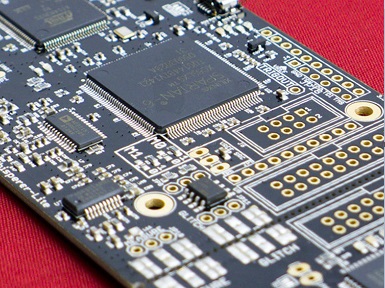 ChipWhisperer — первый Open Source набор инструментов (GPL licenced) для анализа безопасности оборудования, включая анализ атак по сторонним каналам и глитчинг (glitching).
ChipWhisperer — первый Open Source набор инструментов (GPL licenced) для анализа безопасности оборудования, включая анализ атак по сторонним каналам и глитчинг (glitching).
Ближайший коммерческий аналог такого оборудования стоит $30k — $400k, с закрытыми исходниками, что затрудняет исследования и разработки. Проект занял второе место на Hackaday Prize 2014
Сборы — $88,535 ($50,000)
Старт проекта — 27 февраля 2015
Страница проекта на Кикстартере


Дизайн системы

Дизайн железа
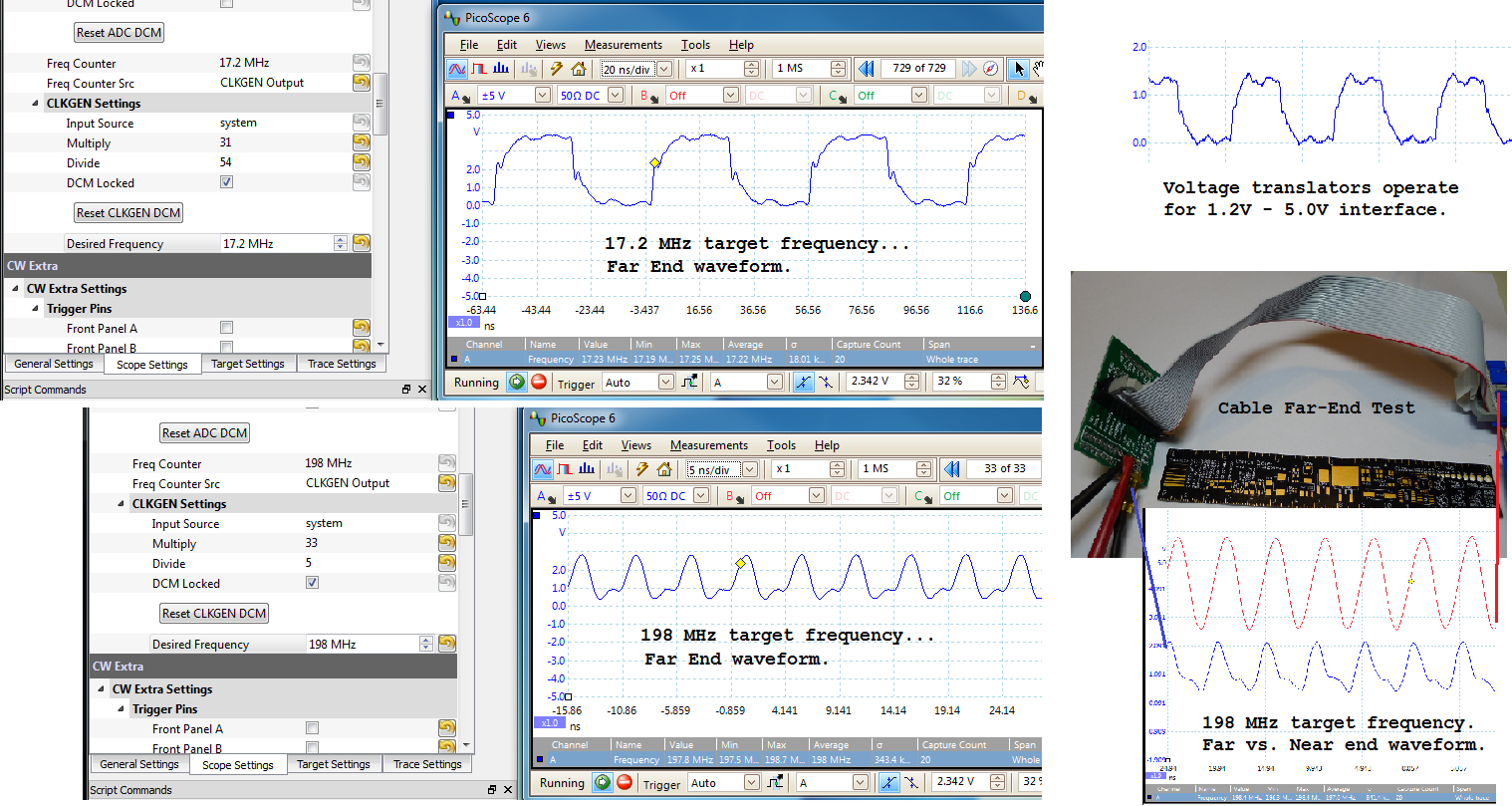
Target IO Interface

Capturing traces from the ChipWhisperer-Lite
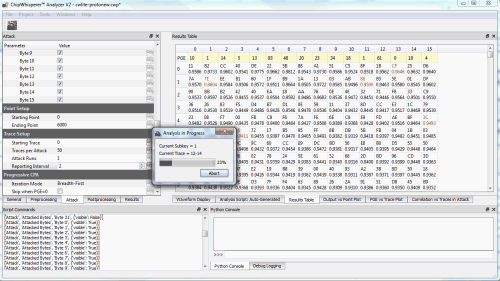
Cracking the encryption key on the previously recovered traces
Видео — самодельное
Фишки:
Позиция разработчиков относительно гибких целей:
Детальное описание и открытая документация
Двухминутный обзор платформы
Атака по сторонним каналам — атаки, направленные на уязвимости в практической реализации криптосистемы
Обучалка:
CHES2013 Tutorial — Low Cost Side Channel Analysis (ChipWhisperer)
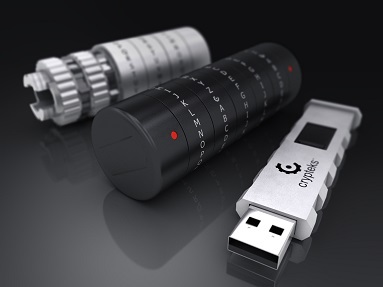 Флешка-фиг-достанешь. От других похожих изделий Crypteks USB Key отличается наличием механической защиты: по сути, сам накопитель является частью кодового замка, так что для получения доступа к информации сначала придется обойти механическую защиту. На этом заботы о безопасности информации не ограничиваются — содержимое накопителя аппаратно шифруется по алгоритму AES (256-битное аппаратное шифрование).
Флешка-фиг-достанешь. От других похожих изделий Crypteks USB Key отличается наличием механической защиты: по сути, сам накопитель является частью кодового замка, так что для получения доступа к информации сначала придется обойти механическую защиту. На этом заботы о безопасности информации не ограничиваются — содержимое накопителя аппаратно шифруется по алгоритму AES (256-битное аппаратное шифрование).
Сборы — $196,404 ($12,000)
Старт проекта — 23 ноября 2011
Сайт проекта — crypteks.com (опа, тут много иероглифов, видать домен уже ушел к другому владельцу)
Страница проекта на Кикстартере
Видео — студийное
Проект Crypteks USB — «старичок» и самый первый на Кикстартере в области информационной безопасности.
Но тут и начались проблемы.
Статья 2013 года с описанием, что все плохо: Buyer Beware: Crypteks’ USB Kickstarter Campaign Highlights the Perils of Crowd Funding
И такое бывает.
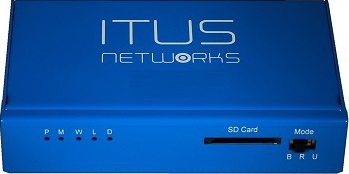 iGuardian , он же Shield, — система сетевой безопасности для домашнего использования, которая защищает компьютеры, планшеты, смартфоны и прочие интернет-устройства от malware, exploits и прочего вреда. С пожизненными обновлениями.
iGuardian , он же Shield, — система сетевой безопасности для домашнего использования, которая защищает компьютеры, планшеты, смартфоны и прочие интернет-устройства от malware, exploits и прочего вреда. С пожизненными обновлениями.
Современный цифровой или «умный» дом содержит множество незащищенных устройств, которые очень легко позволяют преступникам проникнуть в домашнюю сеть, похитить персональную информацию и получить доступ к банковским и другим аккаунтам. iGuardian представляет собой небольшое устройство, оснащенное двумя процессорами 1,0 ГГц MIPS6, с 1GB DDR3 RAM, а также 64 Мб флэш-памяти.
 Устройство работает на основе Linux и предназначено для блокировки кибератак, фильтрации вредоносного ПО и нежелательного контента. Он автоматически инсталлируется в течение 5 минут и не требует какого-либо конфигурирования и технологических знаний. iGuardian защищает только от известных атак, сравнивая сетевой трафик с шаблонами, зафиксированными в базе угроз. При этом iGuardian использует в своей работе Snort, как линейную систему предотвращения вторжений.
Устройство работает на основе Linux и предназначено для блокировки кибератак, фильтрации вредоносного ПО и нежелательного контента. Он автоматически инсталлируется в течение 5 минут и не требует какого-либо конфигурирования и технологических знаний. iGuardian защищает только от известных атак, сравнивая сетевой трафик с шаблонами, зафиксированными в базе угроз. При этом iGuardian использует в своей работе Snort, как линейную систему предотвращения вторжений.
Сборы — $174,382 ($125,000)
Старт проекта — 7 августа 2014
Сайт проекта — itusnetworks.com
Страница проекта на Кикстартере
Фишки:
Видео — студийное
 Флешка MyIDkey с биометрической
Флешка MyIDkey с биометрической
защитой данных имеет сканер отпечатков пальцев и распознает голос владельца. Экран отображает нужную информацию по голосовой команде. При необходимости можно удалить все содержимое нажатием на кнопку, расположенную на флешке. Основная задача данного устройства — хранение паролей и ключей, но в принципе ограничений нет. К другим устройствам можно подключиться через USB или Bluetooth.
Самая интересная функция — это стирание инфы одной кнопкой. Шифрование — AES 256. Также существует возможность восстановления утраченных данных из заранее сделанной и сохраненной на ПК или в онлайн-облаке запасной копии.

Проект за сутки привлек 1 281 бэкера, которые инвестировали в проект 132 800 долларов.
Сборы — $473,333 ($150,000)
Старт проекта — 20 февраля 2013
Страница проекта на Кикстартере
Видео — студийное
Фишки:
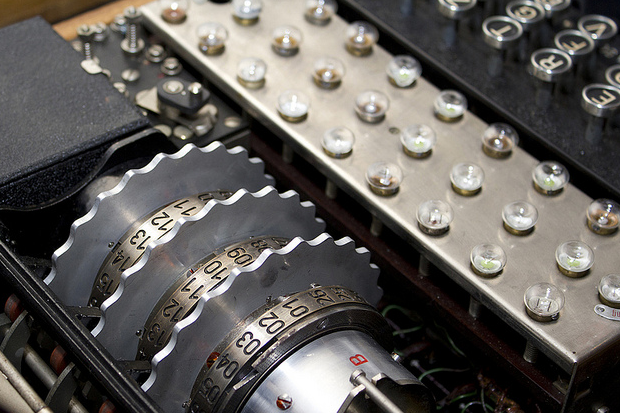
Сборы — $46,420 ($25,000)
Старт проекта — декабрь 2013
Страница проекта на Indiegogo
Идея провести аудит TrueCrypt и заодно привести в порядок его код, лицензию и процедуру сборки на всех платформах возникла на волне истории с тотальной прослушкой интернета Агентством национальной безопасности США, о которой стало известно благодаря Эдварду Сноудену. Публикация информации о деятельности АНБ вызвала множество опасений по поводу наличия закладок спецслужб в открытых криптографических продуктах.
Группа криптографов, которая занималась аудитом исходного кода программы шифрования дисков TrueCrypt завершила работу в апреле 2015. Полный 21-страничный отчёт опубликован на сайте Open Crypto Audit Project.

В ходе аудита кода обнаружено 11 ошибок — среди них ни одной критической, четыре ошибки средней степени опасности, четыре — низкой и три в категории «informational» — то есть практически несущественные с точки зрения безопасности. В 32-страничном отчёте (PDF) для наглядности найденные баги сведены в диаграмму по признакам степени риска и легкости эксплуатации.
Фишки:
Оригинальное описание наград для бэйкеров

Особенность проекта в том, что результат проекта «немного эфемерен», это не продукт, и даже не обучающий курс, а отчет.
Статьи и обсуждения на Хабре раз, два
Статья в Computerra: TrueCrypt: аудит пройден, интрига сохраняется
Статья в Xakep.ru: Аудит TrueCrypt завершен: все нормально
Странные последствия: Сайт TrueCrypt сообщает о закрытии проекта и предлагает переходить на BitLocker
Анонимный, защищённый от любой слежки биткоин-кошелек. В первую очередь планировалось выпустить легковесное расширение для браузеров Firefox и Chrome.
За разработкой Dark Wallet стоят 26-летний американский программист Коди Уилсон (Cody Wilson), получивший
широкую известность, как создатель первого в мире пистолета, полностью распечатанного на 3D-принтере, а также британский программист Амир Тааки (Amir Taaki). Возглавляемая ими команда из нескольких интернет-активистов и разработчиков сама себя называет unSystem.
Основной принцип работы Dark Wallet строится на так называемом механизме «отмывания» биткоинов CoinJoin. С его помощью любая транзакция — будь то покупка на биткоины носков или наркотиков — защищается от отслеживания, смешиваясь с транзакциями других пользователей кошелька.
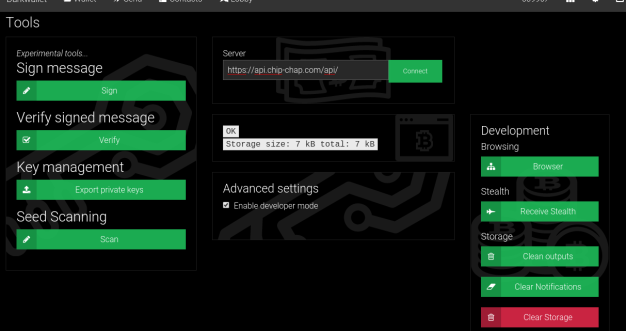
Последняя версия Dark Wallet содержит одновременно и независимую пиринговую биткойн-биржу. Здесь пользователи могут покупать и продавать биткойны, при этом роль арбитров (третьей стороны) выполняет команда разработчиков.
Сборы — $52,075($50,000)
Старт проекта — осень 2013
Страница проекта на Indiegogo
Принимали взносы как в долларах, так и в Bitcoin

Ноутбук, развиваемый в соответствии с принципами Open Hardware.
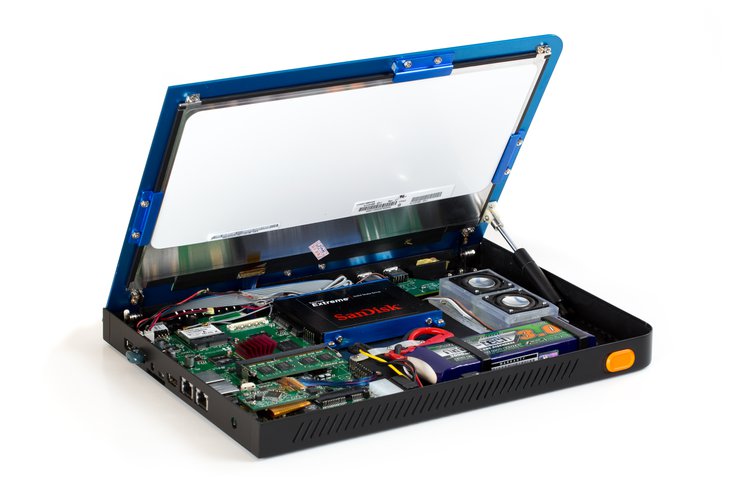
hackaday.com/2014/01/12/bunnies-open-source-laptop-is-ready-for-production
www.crowdsupply.com/sutajio-kosagi/novena
История началась в 2012 году.

Эндрю Хуан (Andrew Huang), известный активист по продвижению идей свободного аппаратного обеспечения, недавно удостоенный премии Pioneer Award 2012, представил свой новый проект Novena, в рамках которого началась разработка ноутбука, развиваемого в соответствии с принципами Open Hardware. Используемая в ноутбуке материнская плата, а также плата управления аккумулятором, будут поставляться с полным предоставлением схем и спецификаций, распространяемых под свободными лицензиями. Воспользовавшись опубликованными открытыми схемами любой производитель при желании может наладить производство подготовленных проектом компонентов и принять участие в их доработке и развитии.
Документация и руководство по созданию ПО для Novena (включая уже созданное ПО) будет открыта. Так что из комплектующих можно будет собрать не только ноутбук (с любым размером дисплея, корпуса и набором комплектующих), но и маршрутизатор, и все прочее, что только захочется.
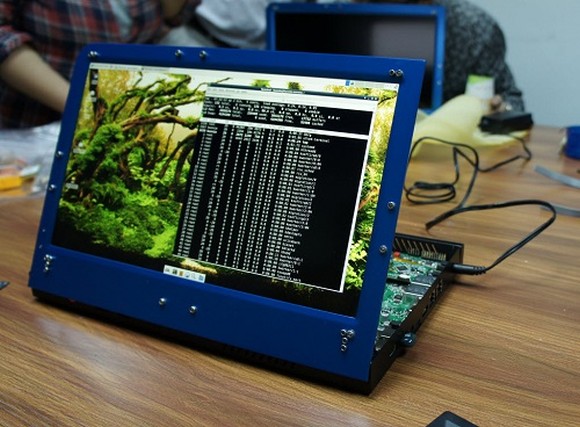
Novena базируется на 1,2 гигагерцевом четырехъядерном ARM процессоре и Xilinx FPGA. А вот специальный дистрибутив Linux для этого ноутбука.
Старт проекта — апрель 2014
Сборы — $783,055 ($250,000)
Страница проекта на Crowdsupply
Видео
Фишки:

У каждого, наверняка, есть знакомые, которые в гараже проводят эксперименты с холодным ядерным синтезом.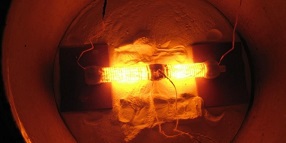
Возможно, они хотят вывести свой проект на краудфандинговую платформу, а может их (как гордых ежиков) стоит для этого хорошенько попинать.
Поделитесь коротко сутью проекта (в комментах или на почту alexey.stacenko(coбакa)gmail.com), мы же со своей стороны, будучи предвзятыми и неадекватными, дадим два инвайта на курс по созданию кампании на Kickstarter. Один инвайтсамой красивой девушке автору проекта, а второй — тому, кто его «сдал». (приоритет для проектов из области ИБ и OpenSource)
Уже один проект самостоятельно сдался.
ChipWhisperer-Lite: A New Era of Hardware Security Research
ChipWhisperer смеется над вашей реализации AES-256. Но смеется вместе с тобой, а не над тобой.
 ChipWhisperer — первый Open Source набор инструментов (GPL licenced) для анализа безопасности оборудования, включая анализ атак по сторонним каналам и глитчинг (glitching).
ChipWhisperer — первый Open Source набор инструментов (GPL licenced) для анализа безопасности оборудования, включая анализ атак по сторонним каналам и глитчинг (glitching). Ближайший коммерческий аналог такого оборудования стоит $30k — $400k, с закрытыми исходниками, что затрудняет исследования и разработки. Проект занял второе место на Hackaday Prize 2014
Сборы — $88,535 ($50,000)
Старт проекта — 27 февраля 2015
Страница проекта на Кикстартере

Дизайн системы

Дизайн железа

Target IO Interface

Capturing traces from the ChipWhisperer-Lite

Cracking the encryption key on the previously recovered traces
Видео — самодельное
Фишки:
СМИ
Бац.
А список СМИ я не нашел. Видать команда работает с сообществом хакеров на конференциях и мероприятиях. На русском языке тоже нет ни одного материала.
Есть подкаст-интервью создателем #239 – An Interview with Colin O’Flynn – Aspirated Adamantine Attacks
А список СМИ я не нашел. Видать команда работает с сообществом хакеров на конференциях и мероприятиях. На русском языке тоже нет ни одного материала.
Есть подкаст-интервью создателем #239 – An Interview with Colin O’Flynn – Aspirated Adamantine Attacks
привлекали клевых актеров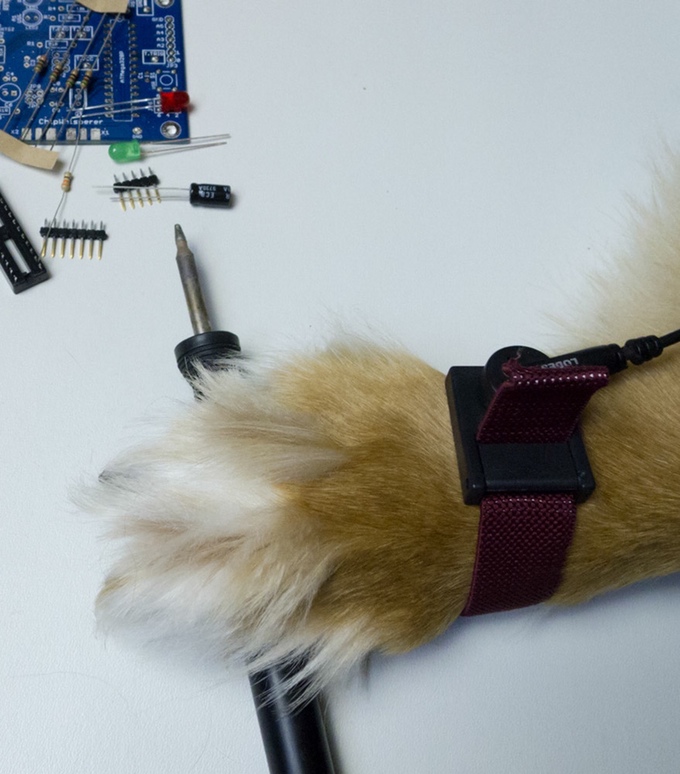
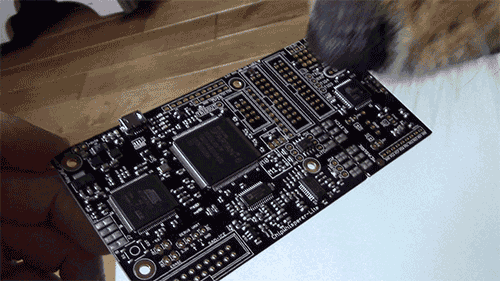


визуализация наград

жгли и ломали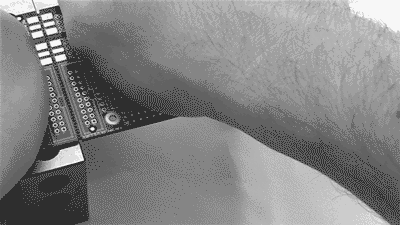
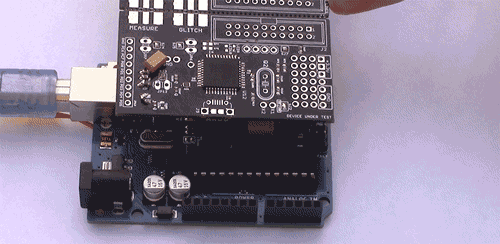
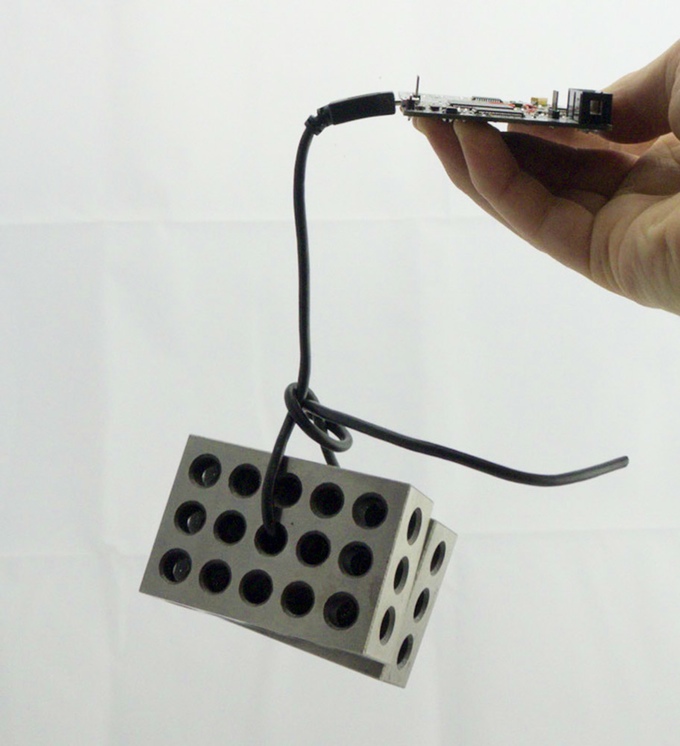
Приводят примеры уязвимостей:


Пример Side-Channel Analysis
Side channel analysis takes advantage of the fact that changing the state of a digital line uses a small amount of power. We can use this to actually break cryptographic implementations of otherwise secure algorithms (such as AES-128 or AES-256).
For more details see my write-up on the theory of a CPA attack,
along with a nice example of step-by-step breaking of the AES using
Python from the ChipWhisperer tutorial list. For the attack to work, we basically just need to be able to tell the encryption/decryption
algorithm to operate while we monitor the power, and know either the output or input to the system.
This can be done with ~20 power traces on an AVR device for example, so it's not a case of taking an unrealistic number of measurements. For example see a real-time example of me breaking an AES-128 implementation in 120 seconds.
For more details see my write-up on the theory of a CPA attack,
along with a nice example of step-by-step breaking of the AES using
Python from the ChipWhisperer tutorial list. For the attack to work, we basically just need to be able to tell the encryption/decryption
algorithm to operate while we monitor the power, and know either the output or input to the system.
This can be done with ~20 power traces on an AVR device for example, so it's not a case of taking an unrealistic number of measurements. For example see a real-time example of me breaking an AES-128 implementation in 120 seconds.
Пример глитчинга
Glitching is another devious attack on embedded systems. This takes advantage of the fact that at some point in your code you'll have a test of the input password, signature, or whatever else. So consider we have this code:

It's actually possible to manipulate the system to cause that check to fail, or for instructions to be skipped. You can glitch a Raspberry Pi as this video shows for example as I show you in the following video:
This attack works with the ChipWhisperer-Lite too (we tested it already!).

It's actually possible to manipulate the system to cause that check to fail, or for instructions to be skipped. You can glitch a Raspberry Pi as this video shows for example as I show you in the following video:
This attack works with the ChipWhisperer-Lite too (we tested it already!).
Позиция разработчиков относительно гибких целей:
«No stretch goals. We're not adding things that might delay the main production — so no stretch goals, no cases, none of that nonsense. If we get 10x the amount pledges it means 10x the amount of work already, so we're not going to further cause headaches by promising intricately carved balsa-wood figurines to stage your re-enactment of a Harry Potter quidditch match or something.»
Детальное описание и открытая документация
Двухминутный обзор платформы
Атака по сторонним каналам — атаки, направленные на уязвимости в практической реализации криптосистемы
Обучалка:
CHES2013 Tutorial — Low Cost Side Channel Analysis (ChipWhisperer)
Crypteks USB™ — Inspired Design meets Ultra-Security
 Флешка-фиг-достанешь. От других похожих изделий Crypteks USB Key отличается наличием механической защиты: по сути, сам накопитель является частью кодового замка, так что для получения доступа к информации сначала придется обойти механическую защиту. На этом заботы о безопасности информации не ограничиваются — содержимое накопителя аппаратно шифруется по алгоритму AES (256-битное аппаратное шифрование).
Флешка-фиг-достанешь. От других похожих изделий Crypteks USB Key отличается наличием механической защиты: по сути, сам накопитель является частью кодового замка, так что для получения доступа к информации сначала придется обойти механическую защиту. На этом заботы о безопасности информации не ограничиваются — содержимое накопителя аппаратно шифруется по алгоритму AES (256-битное аппаратное шифрование).Сборы — $196,404 ($12,000)
Старт проекта — 23 ноября 2011
Сайт проекта — crypteks.com (опа, тут много иероглифов, видать домен уже ушел к другому владельцу)
Страница проекта на Кикстартере
Видео — студийное
Проект Crypteks USB — «старичок» и самый первый на Кикстартере в области информационной безопасности.
Но тут и начались проблемы.
Статья 2013 года с описанием, что все плохо: Buyer Beware: Crypteks’ USB Kickstarter Campaign Highlights the Perils of Crowd Funding
И такое бывает.
Shield — Home Internet Security Appliance
 iGuardian , он же Shield, — система сетевой безопасности для домашнего использования, которая защищает компьютеры, планшеты, смартфоны и прочие интернет-устройства от malware, exploits и прочего вреда. С пожизненными обновлениями.
iGuardian , он же Shield, — система сетевой безопасности для домашнего использования, которая защищает компьютеры, планшеты, смартфоны и прочие интернет-устройства от malware, exploits и прочего вреда. С пожизненными обновлениями. Современный цифровой или «умный» дом содержит множество незащищенных устройств, которые очень легко позволяют преступникам проникнуть в домашнюю сеть, похитить персональную информацию и получить доступ к банковским и другим аккаунтам. iGuardian представляет собой небольшое устройство, оснащенное двумя процессорами 1,0 ГГц MIPS6, с 1GB DDR3 RAM, а также 64 Мб флэш-памяти.
 Устройство работает на основе Linux и предназначено для блокировки кибератак, фильтрации вредоносного ПО и нежелательного контента. Он автоматически инсталлируется в течение 5 минут и не требует какого-либо конфигурирования и технологических знаний. iGuardian защищает только от известных атак, сравнивая сетевой трафик с шаблонами, зафиксированными в базе угроз. При этом iGuardian использует в своей работе Snort, как линейную систему предотвращения вторжений.
Устройство работает на основе Linux и предназначено для блокировки кибератак, фильтрации вредоносного ПО и нежелательного контента. Он автоматически инсталлируется в течение 5 минут и не требует какого-либо конфигурирования и технологических знаний. iGuardian защищает только от известных атак, сравнивая сетевой трафик с шаблонами, зафиксированными в базе угроз. При этом iGuardian использует в своей работе Snort, как линейную систему предотвращения вторжений.Сборы — $174,382 ($125,000)
Старт проекта — 7 августа 2014
Сайт проекта — itusnetworks.com
Страница проекта на Кикстартере
Фишки:
отличная работа с прессой

визуализация гибких целей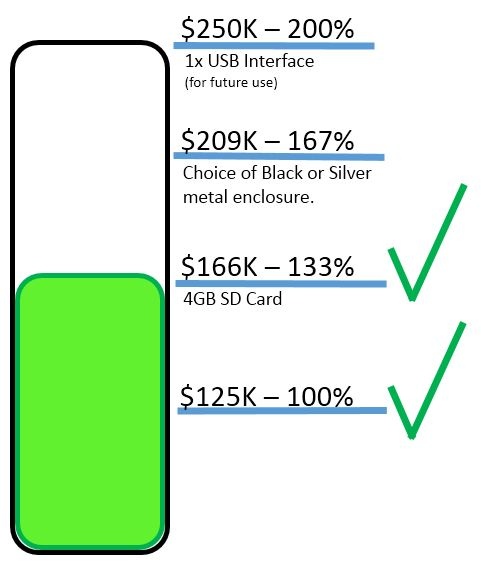

Видео — студийное
myIDkey: Passwords at the tip of your finger
 Флешка MyIDkey с биометрической
Флешка MyIDkey с биометрическойзащитой данных имеет сканер отпечатков пальцев и распознает голос владельца. Экран отображает нужную информацию по голосовой команде. При необходимости можно удалить все содержимое нажатием на кнопку, расположенную на флешке. Основная задача данного устройства — хранение паролей и ключей, но в принципе ограничений нет. К другим устройствам можно подключиться через USB или Bluetooth.
Самая интересная функция — это стирание инфы одной кнопкой. Шифрование — AES 256. Также существует возможность восстановления утраченных данных из заранее сделанной и сохраненной на ПК или в онлайн-облаке запасной копии.

Проект за сутки привлек 1 281 бэкера, которые инвестировали в проект 132 800 долларов.
Сборы — $473,333 ($150,000)
Старт проекта — 20 февраля 2013
Страница проекта на Кикстартере
Видео — студийное
Фишки:
пресса

визуализация наград

гибкие цели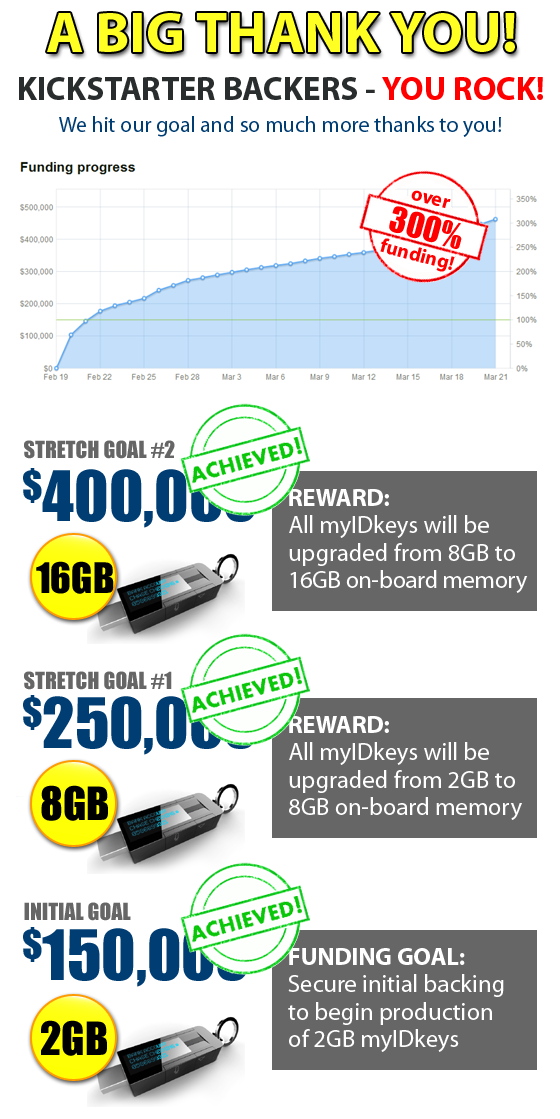

Еще краудфандинговые проекты, но не с Кикстартера
The TrueCrypt Audit(Indiegogo)

Сборы — $46,420 ($25,000)
Старт проекта — декабрь 2013
Страница проекта на Indiegogo
Идея провести аудит TrueCrypt и заодно привести в порядок его код, лицензию и процедуру сборки на всех платформах возникла на волне истории с тотальной прослушкой интернета Агентством национальной безопасности США, о которой стало известно благодаря Эдварду Сноудену. Публикация информации о деятельности АНБ вызвала множество опасений по поводу наличия закладок спецслужб в открытых криптографических продуктах.
Группа криптографов, которая занималась аудитом исходного кода программы шифрования дисков TrueCrypt завершила работу в апреле 2015. Полный 21-страничный отчёт опубликован на сайте Open Crypto Audit Project.

В ходе аудита кода обнаружено 11 ошибок — среди них ни одной критической, четыре ошибки средней степени опасности, четыре — низкой и три в категории «informational» — то есть практически несущественные с точки зрения безопасности. В 32-страничном отчёте (PDF) для наглядности найденные баги сведены в диаграмму по признакам степени риска и легкости эксплуатации.
Фишки:
Оригинальное описание наград для бэйкеров

Особенность проекта в том, что результат проекта «немного эфемерен», это не продукт, и даже не обучающий курс, а отчет.
Статьи и обсуждения на Хабре раз, два
Статья в Computerra: TrueCrypt: аудит пройден, интрига сохраняется
Статья в Xakep.ru: Аудит TrueCrypt завершен: все нормально
Странные последствия: Сайт TrueCrypt сообщает о закрытии проекта и предлагает переходить на BitLocker
Bitcoin Dark Wallet(Indiegogo)
Анонимный, защищённый от любой слежки биткоин-кошелек. В первую очередь планировалось выпустить легковесное расширение для браузеров Firefox и Chrome.
За разработкой Dark Wallet стоят 26-летний американский программист Коди Уилсон (Cody Wilson), получивший
широкую известность, как создатель первого в мире пистолета, полностью распечатанного на 3D-принтере, а также британский программист Амир Тааки (Amir Taaki). Возглавляемая ими команда из нескольких интернет-активистов и разработчиков сама себя называет unSystem.
Основной принцип работы Dark Wallet строится на так называемом механизме «отмывания» биткоинов CoinJoin. С его помощью любая транзакция — будь то покупка на биткоины носков или наркотиков — защищается от отслеживания, смешиваясь с транзакциями других пользователей кошелька.
«Я хочу иметь полностью анонимное средство для оплаты биткоинами любых товаров на чёрном рынке. Это могут быть лекарства, приобретаемые без рецепта, лёгкие или тяжёлые наркотики, оружие. Да, в теневом интернете иногда случаются плохие вещи. Свобода — опасная вещь. Dark Wallet — настоящий кошмар для правоохранительных органов. Они считают, что уход в тень — это большая проблема. Но с биткоинами этого ухода не избежать.» Коди Уилсон, разработчик Dark Wallet

Последняя версия Dark Wallet содержит одновременно и независимую пиринговую биткойн-биржу. Здесь пользователи могут покупать и продавать биткойны, при этом роль арбитров (третьей стороны) выполняет команда разработчиков.
Сборы — $52,075($50,000)
Старт проекта — осень 2013
Страница проекта на Indiegogo
Принимали взносы как в долларах, так и в Bitcoin

Novena — [BUNNIE]’S Open Source laptop (Crowdsupply)
Ноутбук, развиваемый в соответствии с принципами Open Hardware.

hackaday.com/2014/01/12/bunnies-open-source-laptop-is-ready-for-production
www.crowdsupply.com/sutajio-kosagi/novena
История началась в 2012 году.

Эндрю Хуан (Andrew Huang), известный активист по продвижению идей свободного аппаратного обеспечения, недавно удостоенный премии Pioneer Award 2012, представил свой новый проект Novena, в рамках которого началась разработка ноутбука, развиваемого в соответствии с принципами Open Hardware. Используемая в ноутбуке материнская плата, а также плата управления аккумулятором, будут поставляться с полным предоставлением схем и спецификаций, распространяемых под свободными лицензиями. Воспользовавшись опубликованными открытыми схемами любой производитель при желании может наладить производство подготовленных проектом компонентов и принять участие в их доработке и развитии.
Документация и руководство по созданию ПО для Novena (включая уже созданное ПО) будет открыта. Так что из комплектующих можно будет собрать не только ноутбук (с любым размером дисплея, корпуса и набором комплектующих), но и маршрутизатор, и все прочее, что только захочется.

Novena базируется на 1,2 гигагерцевом четырехъядерном ARM процессоре и Xilinx FPGA. А вот специальный дистрибутив Linux для этого ноутбука.
Старт проекта — апрель 2014
Сборы — $783,055 ($250,000)
Страница проекта на Crowdsupply
Видео
Фишки:
продуманные и хорошо прописанные Stretch Goals
www.crowdsupply.com/kosagi/novena-open-laptop/stretch-goals
We’re very flattered to have reached almost 70% of our goal already and would like to thank our supporters. A lot of people have reached out to us to extend Novena and make it even better, and so we’re offering these stretch goals to provide you an even better open laptop.
Partnering with Jon Nettleton for Open 2D/3D Graphics Drivers on Novena: +$50k ($300k total) [COMPLETE AS OF MAY 12!]
We designed Novena to be the most open platform we could practically build. The hardware blueprints and software source code are available for download. The entire OS is buildable from human-readable source, and requires no binary blobs to boot and run well. However, there are elements of the i.MX6 SoC that lie dormant, due to a lack of open source drivers. In particular, the 2D/3D graphics accelerator in the i.MX6 has closed-source drivers. While we don’t force you to use these closed-source drivers, a major impediment to us being “libre” is the lack of open source drivers for these components.
We’re excited to announce a partnership with Jon Nettleton, an expert on Linux graphics drivers, to enable this crucial piece of the libre puzzle. Here is a short statement from Jon Nettleton himself on the prospect:
Therefore, if we can raise $50k over our original target of $250k, we will donate the $10k that Jon needs for the effort for providing open 2D/3D graphics drivers for the Novena platform. The remainder of that raised will be used to help cover the costs of building the hardware you ordered.
Significantly, since this is an open source effort, everyone in the i.MX6 community can benefit from the outcome of this funding. Because of this, we’ve added a “Buy Jon a Six Pack ($30)” pledge tier (capped at 417 pledges) so that existing i.MX6 users who want to contribute toward this goal without buying our hardware can participate. For every dollar contributed to this pledge tier, we will give Jon Nettleton at least 80 cents, regardless of our ability to reach the first stretch goal. The other ~20 cents go toward compulsory campaign operation costs and financial operator transaction fees.
General-Purpose Breakout Board: +$100k ($350k total) [COMPLETE AS OF MAY 16!]
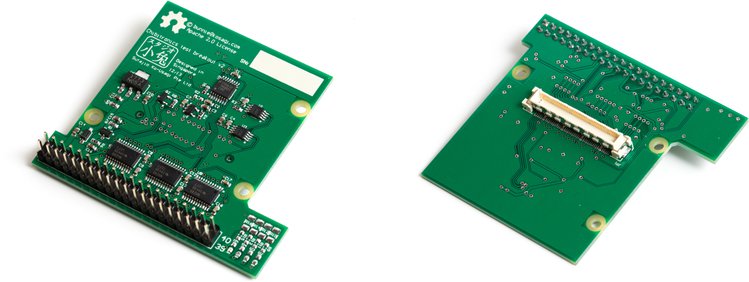
We include a FPGA and a nice high-speed connector, but many users just want to toggle a GPIO or take a simple analog reading without having to design and build a PCBA from scratch. If we can raise an additional $50k over the previous stretch goal, we will include a General Purpose Breakout Board (GPBB) with every piece of hardware we ship.
The GPBB buffers 16 FPGA outputs and 8 FPGA inputs to be compatible with either 3.3V or 5V, gang-selectable via software. It also provides six 10-bit analog inputs (up to 200ksps sample rate) and two 10bit analog outputs (~100ksps max rate), all broken out to an easy-to-use 40-pin male 0.1” dual-row header.
The GPBB is handy for all kinds of control and sensing situations. Because the GPBB is backed by a powerful FPGA, each of the buffered FPGA output lines can be programmed for a wide range of applications. For example, an FPGA output could be configured as a precision PWM channel with hard-real time feedback control for demanding robotics motor driver applications. Or it can be used to interface with bespoke serial protocols, such as those found in modern LED strip lighting.
For users who don’t want to muck with FPGA code and prefer to grapple a GPIO from the command line, we have user-space drivers for the board prepared in Linux, through a combination of the Linux GPIO API, and the Linux I2C API. As a result it’s a snap to script up simple applications using your favorite high level language.
Significantly, the GPBB isn’t vaporware – we developed this board originally for use as a breakout for production testing circuit stickers from our Chibitronics product line. At this very moment, the GPBB design is being used to drive mass production of circuit stickers.
ROMulator Breakout Board: +$150k ($400k total) [COMPLETE AS OF MAY 16!]
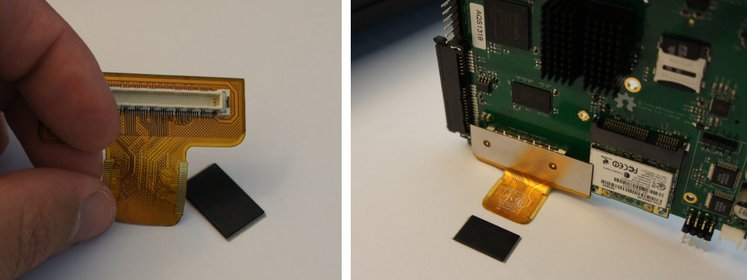
We designed Novena to be a versatile hacking tool. Case in point, last December we reported results at 30C3 revealing a secret knock that can allow arbitrary code execution on select SD card controllers. We discovered this in part with the assistance of Novena.
We used Novena as a ROMulator – a FLASH ROM emulator. For this application, we developed a flexible PCB that’s so thin, it can be soldered in between a TSOP FLASH ROM and the underlying PCB. In this mode, we can use the FPGA built into Novena to snoop the traffic going to and from the FLASH ROM.
Alternately, the FPGA can be used to emulate a ROM device using its local 256 MiB of DDR3 memory. Since the DDR3 controller implementation is multi-ported, during ROM emulation one can inspect and modify the ROM contents on the fly without disrupting target operation. This has a number of powerful applications, from ToC/ToU attacks to speeding up firmware development on devices that load from NAND.
If we can raise an additional $50k over the previous tier, we’ll include a ROMulator Breakout Board (in addition to the General Purpose Breakout Board) with every piece of hardware shipped.
MyriadRF Software Defined Radio: +$250k ($500k total) or >200 backers for the desktop/laptop/heirloom version [COMPLETE AS OF MAY 16!]
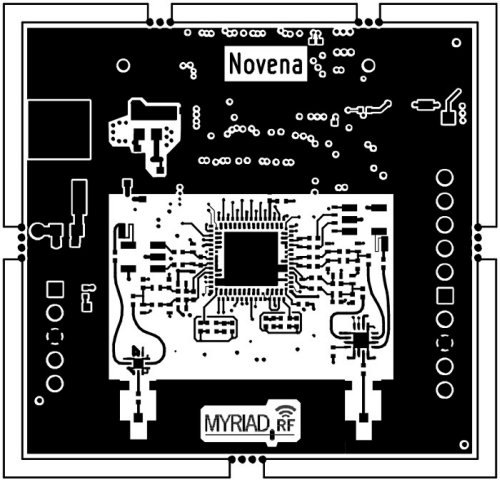
Software! Defined! Radio! We’re very excited to offer the possibility of teaming up with MyriadRF, to provide a custom-made SDR solution for Novena. Their open hardware SDR solution operates in all the major radio bands, including LTE, CDMA, TD-CDMA, W-CDMA, WiMAX, 2G and many more.
The retail price of the MyriadRF is $299, and MyriadRF has graciously pulled strings with their fabrication partner and enabled a low minimum order quantity of 200 units to build this custom version for Novena. If we can clear a total raise of $500k or at least 200 total backers for the desktop/laptop/heirloom version, we’ll include with every desktop/laptop/heirloom version a MyriadRF SDR board. Since the MyriadRF is such a high ticket-item, only desktop and higher tiers are eligible to receive this reward.
Significantly, the MyriadRF extends beyond the front of the Novena case, so part of the money from this tier is going toward buying the extra tooling to provision a removable panel on the front edge of the case, so that when the SDR module is installed it can comfortably hang out of the case, giving easy access to the U.FL RF connectors.
Thanks for your support!
bunnie and xobs
We’re very flattered to have reached almost 70% of our goal already and would like to thank our supporters. A lot of people have reached out to us to extend Novena and make it even better, and so we’re offering these stretch goals to provide you an even better open laptop.
Partnering with Jon Nettleton for Open 2D/3D Graphics Drivers on Novena: +$50k ($300k total) [COMPLETE AS OF MAY 12!]
We designed Novena to be the most open platform we could practically build. The hardware blueprints and software source code are available for download. The entire OS is buildable from human-readable source, and requires no binary blobs to boot and run well. However, there are elements of the i.MX6 SoC that lie dormant, due to a lack of open source drivers. In particular, the 2D/3D graphics accelerator in the i.MX6 has closed-source drivers. While we don’t force you to use these closed-source drivers, a major impediment to us being “libre” is the lack of open source drivers for these components.
We’re excited to announce a partnership with Jon Nettleton, an expert on Linux graphics drivers, to enable this crucial piece of the libre puzzle. Here is a short statement from Jon Nettleton himself on the prospect:
Novena Backers and OSS enthusiasts,
I am very pleased to announce myself, Jon Nettleton (a.k.a. jnettlet, linux4kix), as a stretch-goal partner for the Novena Project. I will be taking on the task of assuring that the shipping Novena platforms will not require a binary userspace driver for 2D/3D graphics acceleration.
Utilizing my experience working on Linux graphics drivers along with my strong community involvement, I will be making sure that contributing developers have everything they need to keep the Etnaviv driver project moving forward.
To accomplish this we are requesting an additional $10,000 of funding. This additional capital will be used to not just fund my development effort, but to also provide incentives for other contributing developers. It will also benefit me the time to coordinate with other hardware vendors interested in supporting an open source graphics driver implementation for the Vivante chipset, and getting them involved. There is no “US“ and “THEM” in this effort. “WE” will bring to fruition a modern graphics accelerated desktop platform for the Novena Project.
Therefore, if we can raise $50k over our original target of $250k, we will donate the $10k that Jon needs for the effort for providing open 2D/3D graphics drivers for the Novena platform. The remainder of that raised will be used to help cover the costs of building the hardware you ordered.
Significantly, since this is an open source effort, everyone in the i.MX6 community can benefit from the outcome of this funding. Because of this, we’ve added a “Buy Jon a Six Pack ($30)” pledge tier (capped at 417 pledges) so that existing i.MX6 users who want to contribute toward this goal without buying our hardware can participate. For every dollar contributed to this pledge tier, we will give Jon Nettleton at least 80 cents, regardless of our ability to reach the first stretch goal. The other ~20 cents go toward compulsory campaign operation costs and financial operator transaction fees.
General-Purpose Breakout Board: +$100k ($350k total) [COMPLETE AS OF MAY 16!]

We include a FPGA and a nice high-speed connector, but many users just want to toggle a GPIO or take a simple analog reading without having to design and build a PCBA from scratch. If we can raise an additional $50k over the previous stretch goal, we will include a General Purpose Breakout Board (GPBB) with every piece of hardware we ship.
The GPBB buffers 16 FPGA outputs and 8 FPGA inputs to be compatible with either 3.3V or 5V, gang-selectable via software. It also provides six 10-bit analog inputs (up to 200ksps sample rate) and two 10bit analog outputs (~100ksps max rate), all broken out to an easy-to-use 40-pin male 0.1” dual-row header.
The GPBB is handy for all kinds of control and sensing situations. Because the GPBB is backed by a powerful FPGA, each of the buffered FPGA output lines can be programmed for a wide range of applications. For example, an FPGA output could be configured as a precision PWM channel with hard-real time feedback control for demanding robotics motor driver applications. Or it can be used to interface with bespoke serial protocols, such as those found in modern LED strip lighting.
For users who don’t want to muck with FPGA code and prefer to grapple a GPIO from the command line, we have user-space drivers for the board prepared in Linux, through a combination of the Linux GPIO API, and the Linux I2C API. As a result it’s a snap to script up simple applications using your favorite high level language.
Significantly, the GPBB isn’t vaporware – we developed this board originally for use as a breakout for production testing circuit stickers from our Chibitronics product line. At this very moment, the GPBB design is being used to drive mass production of circuit stickers.
ROMulator Breakout Board: +$150k ($400k total) [COMPLETE AS OF MAY 16!]

We designed Novena to be a versatile hacking tool. Case in point, last December we reported results at 30C3 revealing a secret knock that can allow arbitrary code execution on select SD card controllers. We discovered this in part with the assistance of Novena.
We used Novena as a ROMulator – a FLASH ROM emulator. For this application, we developed a flexible PCB that’s so thin, it can be soldered in between a TSOP FLASH ROM and the underlying PCB. In this mode, we can use the FPGA built into Novena to snoop the traffic going to and from the FLASH ROM.
Alternately, the FPGA can be used to emulate a ROM device using its local 256 MiB of DDR3 memory. Since the DDR3 controller implementation is multi-ported, during ROM emulation one can inspect and modify the ROM contents on the fly without disrupting target operation. This has a number of powerful applications, from ToC/ToU attacks to speeding up firmware development on devices that load from NAND.
If we can raise an additional $50k over the previous tier, we’ll include a ROMulator Breakout Board (in addition to the General Purpose Breakout Board) with every piece of hardware shipped.
MyriadRF Software Defined Radio: +$250k ($500k total) or >200 backers for the desktop/laptop/heirloom version [COMPLETE AS OF MAY 16!]

Software! Defined! Radio! We’re very excited to offer the possibility of teaming up with MyriadRF, to provide a custom-made SDR solution for Novena. Their open hardware SDR solution operates in all the major radio bands, including LTE, CDMA, TD-CDMA, W-CDMA, WiMAX, 2G and many more.
The retail price of the MyriadRF is $299, and MyriadRF has graciously pulled strings with their fabrication partner and enabled a low minimum order quantity of 200 units to build this custom version for Novena. If we can clear a total raise of $500k or at least 200 total backers for the desktop/laptop/heirloom version, we’ll include with every desktop/laptop/heirloom version a MyriadRF SDR board. Since the MyriadRF is such a high ticket-item, only desktop and higher tiers are eligible to receive this reward.
Significantly, the MyriadRF extends beyond the front of the Novena case, so part of the money from this tier is going toward buying the extra tooling to provision a removable panel on the front edge of the case, so that when the SDR module is installed it can comfortably hang out of the case, giving easy access to the U.FL RF connectors.
Thanks for your support!
bunnie and xobs
СМИ
WIRED
Mashable
VentureBeat
Tested
VentureBeat
The Next Web
Boing Boing
Laptop Mag
Tecmundo
Backerjack
Adafruit
Makezine
PC World
GEEK
IDG CONNECT
liliputing
Linux.com
TechCrunch
The Next Web
“The project is part of larger movement towards open source hardware.”
Mashable
“A Linux-powered machine where every component can be modified by the user. Anyone who owns one will be able to rewire and reprogram individual components.”
VentureBeat
“The machine is designed to be open, flexible, and powerful.”
Tested
“It’s the most ambitious attempt yet at a fully open hardware platform.”
VentureBeat
“It seems like something you just wouldn’t do or couldn’t do on a commercial laptop.”
The Next Web
“The actual design of the laptop itself is fully open, and users can adapt it to suit any other use cases they can think of.”
Boing Boing
“I’ve put in for one of the laptops. I can’t wait.”
Laptop Mag
“Appealing to hardware hackers, a new build-your-own laptop kit, called Novena, puts you in the manufacturer’s seat.”
Tecmundo
“developed for those who want to build your own computer without having to be limited to the choices made by various manufacturers in the market.”
Backerjack
“This is a compact, modifiable solution for any kind of software or hardware development needs.”
Adafruit
“They’ve worked on many Adafruit products/projects and an open source hardware laptop needs to be celebrated.”
Makezine
“The World’s First Open Source Laptop Makes Its Debut.”
PC World
“Allows users to drop in their own components and reprogram the machine as they see fit.”
GEEK
“Novena took the form of a laptop you could build yourself.”
IDG CONNECT
“Crowdsourcing Innovation: Andrew “Bunnie” Huang.”
liliputing
“Novena is designed from the ground up with openness in mind.”
Linux.com
“Novena is more than just an open hardware laptop; it’s designed from the outset to be a flexible compute platform”
TechCrunch
“Huang knows hardware, and this is one of the coolest projects he’s done”
The Next Web
“This is proof of the demand that exists among developers who want the freedom of doing hardware experiments.”
Конкурс

У каждого, наверняка, есть знакомые, которые в гараже проводят эксперименты с холодным ядерным синтезом.

Возможно, они хотят вывести свой проект на краудфандинговую платформу, а может их (как гордых ежиков) стоит для этого хорошенько попинать.
Поделитесь коротко сутью проекта (в комментах или на почту alexey.stacenko(coбакa)gmail.com), мы же со своей стороны, будучи предвзятыми и неадекватными, дадим два инвайта на курс по созданию кампании на Kickstarter. Один инвайт
Уже один проект самостоятельно сдался.
теплопушка с каталитическим дожигателем
Прямая подача тепла сгорания топлива (воздуха) в помещение без использования теплообменников (котлов), теплопроводов (труб), тепловыделителей (радиаторов), с очисткой воздуха (продуктов сгорания) катализатором.


Прямая подача тепла сгорания топлива (воздуха) в помещение без использования теплообменников (котлов), теплопроводов (труб), тепловыделителей (радиаторов), с очисткой воздуха (продуктов сгорания) катализатором.



izac
Очень понравился выпуск, пишите ешё.